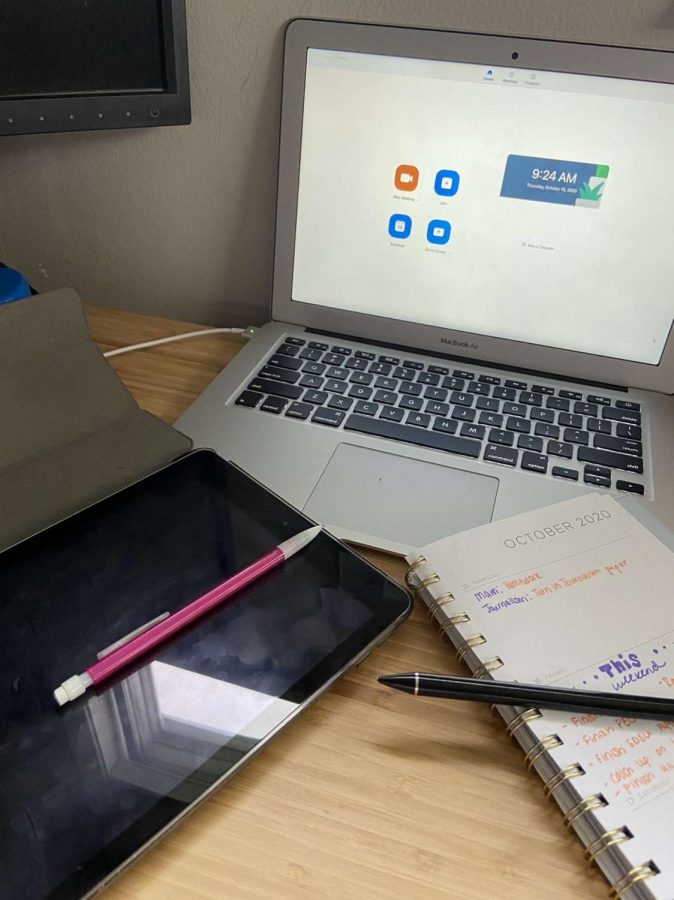I get home, pour a cup of coffee, and begin my homework assignments for all six classes that give me homework. It’s now 7 p.m. I eat dinner, take a shower, and glance at my phone. My friend is asking me to play games, and I play with him, but when I check the time again, it’s already 11 p.m., and I still haven’t studied for my AP Psychology test tomorrow. I drink another cup of coffee and study until 12:30 a.m. brush my teeth, and go to bed, rolling around unable to sleep. When I finally am able to fall asleep, I wake up, the alarm ringing at 6:30 a.m. That’s the reality for many high schoolers.
Homework has been a long time staple, and much hated routine that most students have reluctantly accepted. But as time goes by, the question eventually arises, is homework really helping us learn, or is it simply making us stress? As a student, I believe that homework does more harm than good and it’s time schools reconsider how, or even if, they use homework to enhance our education.
One of the main problems with homework is its impact on students’ mental health. School is already a full-time job. Students spend more than eight hours per day in class. Adding two or more homework tasks on top of that can cause high levels of stress and anxiety. This is especially true for those of us who juggle extracurricular activities, part-time jobs, or family responsibilities. According to a study by Stanford University, 56% of high school students reported that homework was their main stressor. Instead of emphasizing the lessons taught in class. Too much homework makes us anxious and interferes with our concentration.
Some argue that homework is important to reinforce what we learn in class and develop time management skills. Students practice and retain the lessons taught in class by devoting time to homework. But reality is often less than ideal. Exercise or relaxation can be done. These activities are important for mental health. But sacrifices are often made in the name of academic success.
The constant cycle of school and homework can leave students feeling overwhelmed, tired, and disconnected from learning. Students may lack motivation and their academic performance may decrease, for students who must balance other responsibilities this extra workload can lead to chronic stress. This makes it even harder to succeed academically. Schools should consider this potential outcome when doing homework and explore options that help students gain additional practice without risking burnout.
There is also the question of whether homework actually benefits our academic performance. According to the NSHSS, studies have found that spending more than two hours on homework is ineffective. and instead causes unnecessary stress. If the main goal of homework is to improve understanding and academic success, schools should focus on innovative teaching methods that directly engage students in the classroom, where teachers can give advice and suggestions immediately
As a student, I believe that homework not only does more harm than good, it also fails to achieve its intended objective of raising the level of education. Although homework may be intended to teach responsibility and time management, it’s excessive and often ineffective and it risks doing more harm than good, both academically and personally. It’s time for schools to rethink their approach to homework and focus on effective, stress-free teaching methods that don’t harm the students’ well being.











